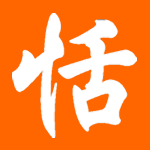From reader "cloverleaf315w":
"I have three characters down my spine, they are supposed to mean 'wild, powerful, and fearless'. Can you tell me that's what I really paid for. I got these done in Tennessee by a local guy everyone goes to. It wasn't my best choice of tattoos I've put on my body, (slightly intoxicated)"
After I done some research, here is what I found:
The top one 野 means "wild", the second one 恐 means "afraid", and the last one 強 means "strength".


Maybe the second character is better translated as dreadful rather than "afraid." You'll often hear Japanese people say this if they ever get into a dangerous situation or if they see a dangerous situation. It can also be used to describe people (i.e. people in the yakuza).
ReplyDelete恐い; 怖い(P) 【こわい】 (adj) scary; frightening; eerie; dreadful
Wild, Scary, Strong is what it says, but it's still semi-poor as things go.
ReplyDeleteSee, it's actually 5 characters, with the second two characters being followed with い which is just the ending of an adjective.
However, if you were going to link them together (to say 'and') then you wouldn't use the い.
It would have been better just to get the three kanji perhaps rather than getting the hiragana in between?
In fact, the Japanese word '野' (no) just means field or plain. Used as a prefix (ya- or no-) it means wild though, but that's primarily in the sense of a wild flower or animal. It's used often in names, pronounced as 'no'. I'm not really sure what it's supposed to mean here though.. first thing that pops to mind is 'this guy here has fields of fear and strength' but that may be a load of horsecrap.
ReplyDelete'恐い' (kowai) indeed means fearful/dreadful, and '強い' (tsuyoi) means strong, both adjectives; words ending with the hiragana 'i' (that's the character with two strokes appearing after 恐 and 強) generally are adjectives of a type called 'i-adjectives'.
Hi,
ReplyDeleteI'm a Japanese who studied Chinese a bit.
tian, I like your site. This is so hilarious.
It's been long known to many Japanese(and Chinese) that
Westerners get Hanzi(Kanji) tatoos which never fail to make
us laugh, astonished, perplexed, or whatever...
Well, we do the same with English/French words, maybe much
worse.
Take a look of this site ---> http://www.engrish.com/
You'll find how awfully we mess up English words all the time.
cloverleaf315w, no offense, but I will give you the
impression I got. I have to say that what you got on your
spine cannot be what you paid for. If I were you, I would go
crazy for the gibberish. Technically, it's not completely
wrong, however, they are so childish words lined up without
any context nor connections. If translated into English
again, they should be like: field-afraid-strong. It must
appear to Japanese speaking ppl that it's a single word or
two words without much meanings.
As they say in Japanese - Kowai! Kowai! (Meaning "That's scary" or " Oh, my GOD (in a negative sense)!"
ReplyDelete